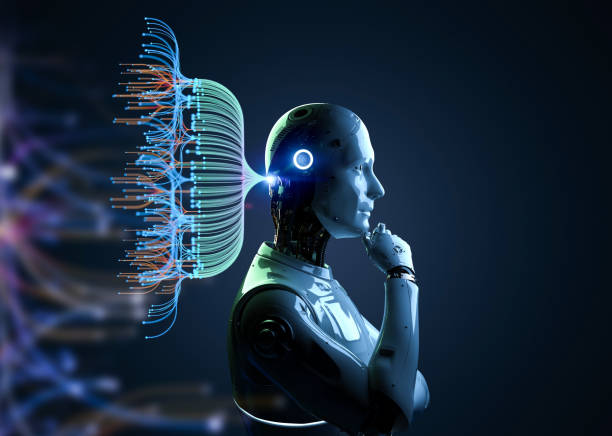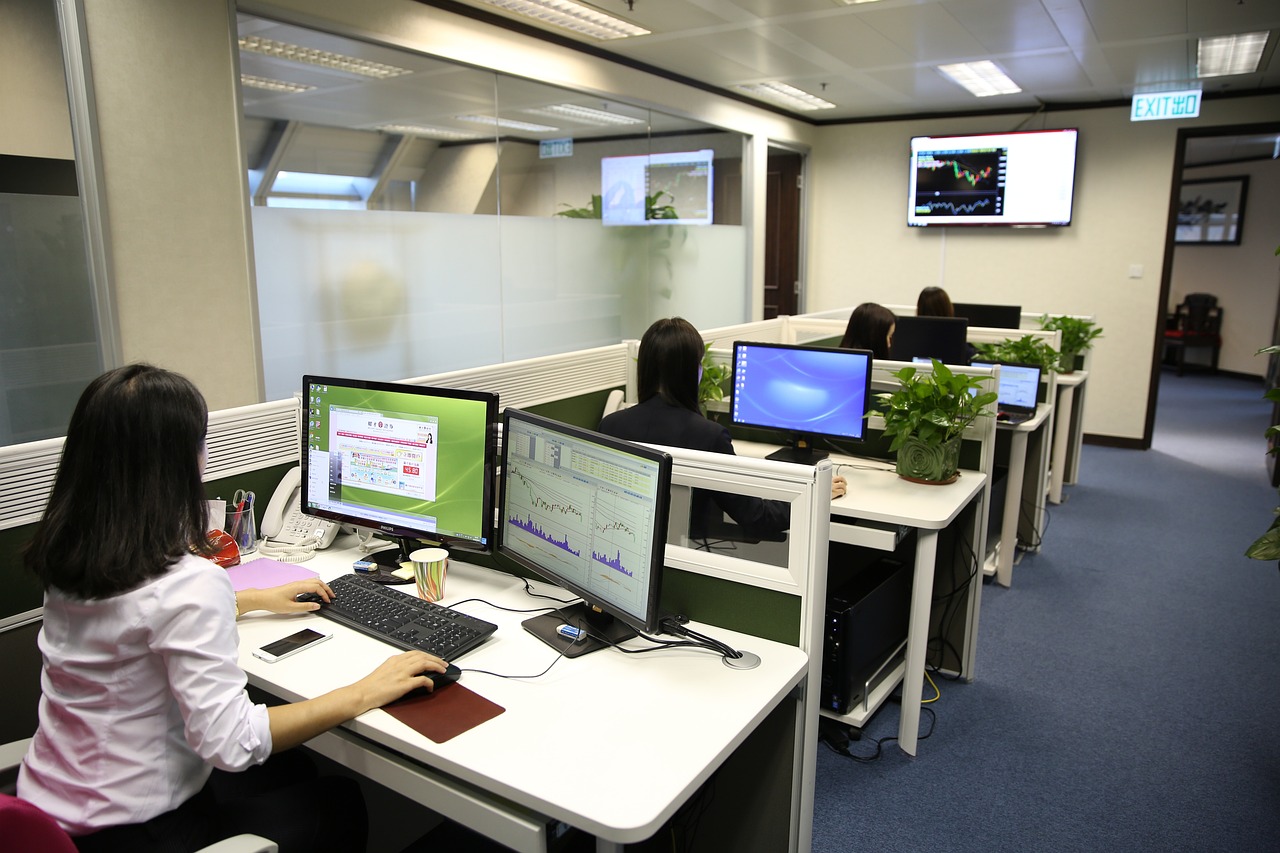
Transformative Breakthroughs: Pioneering Changes in Healthcare, Real Estate, and Manufacturing
Innovative advancements are reshaping various industries, leaving indelible marks on healthcare, real estate, and manufacturing. This article delves into the transformative breakthroughs that are pioneering these notable changes.
**Revolutionizing Healthcare through AI and Machine Learning**
Artificial Intelligence (AI) and Machine Learning (ML) are drastically changing the healthcare landscape by enhancing diagnostics, personalized medicine, and operational efficiencies. AI algorithms analyze vast amounts of medical data to identify patterns and predict outcomes, which can lead to early detection of diseases like cancer and heart disease.
For instance, AI-driven image recognition software can examine radiology images with remarkable accuracy, often faster and more reliably than human doctors. This accelerates the diagnostic process, allowing for quicker interventions and ultimately saving lives.
Moreover, personalized medicine is experiencing a renaissance with the aid of ML. By analyzing genetic information alongside patients’ histories, ML models can pinpoint the most effective treatment plans tailored to individual needs. This precision medicine reduces the trial-and-error approach in treatments, thereby increasing efficacy and reducing side effects. Hospitals and clinics are also using AI to streamline administrative tasks, such as scheduling and patient management, freeing healthcare professionals to focus more on patient care.
Telemedicine, propelled by AI, is another frontier driving healthcare transformation. AI-powered chatbots provide preliminary consultations, directing patients to appropriate resources and often reducing the need for in-person visits. This is particularly beneficial in remote areas where healthcare access is limited. As these technologies continue to evolve, the potential for broader and more impactful advancements in healthcare is immense, promising improvements in patient outcomes and operational efficiencies.
**Smart Technologies and Sustainability in Real Estate**
The real estate sector is undergoing a significant shift towards smart technologies and sustainable practices. Smart homes, equipped with Internet of Things (IoT) devices, provide enhanced living experiences through automation and increased energy efficiency. These homes can manage lighting, heating, and security systems autonomously, adapting to residents’ lifestyles. IoT sensors monitor energy consumption, making it easier for homeowners to reduce their carbon footprint.
Sustainability has become a cornerstone in modern real estate development. Green buildings, designed to minimize environmental impact, incorporate energy-efficient materials and renewable energy sources like solar panels and wind turbines. Innovations in construction materials, such as carbon-neutral concrete and recyclable metals, further contribute to reducing the environmental footprint of buildings. The integration of green roofs and walls also helps combat urban heat islands and promotes biodiversity in city environments.
Moreover, smart city initiatives are taking urban planning to new heights. By leveraging data and advanced analytics, these cities optimize traffic flow, reduce waste, and improve public services. For instance, smart transportation systems adjust signal timings based on real-time traffic data, reducing congestion and emissions. Waste management systems equipped with IoT can optimize collection routes, improving efficiency and reducing operational costs. As cities grow and evolve, the integration of smart technologies and sustainable practices will play a crucial role in developing functional and environmentally-friendly urban environments.
**Manufacturing 4.0: The Dawn of Industry 4.0**
The manufacturing sector is undergoing a revolution marked by the advent of Industry 4.0, integrating cyber-physical systems, the IoT, and cloud computing. These technologies create smart factories where machines communicate autonomously, leading to highly efficient and adaptable production processes. Robotics and automation have significantly advanced, with collaborative robots (cobots) working alongside human workers, increasing productivity while ensuring safety.
Predictive maintenance, enabled by IoT sensors and data analytics, is a game-changer in manufacturing. Machines equipped with sensors can predict when they are likely to fail and need maintenance, thus preventing unexpected downtime. This not only reduces maintenance costs but also improves the overall efficiency of the production line. Digital twins, virtual replicas of physical systems, have become an integral part of product lifecycle management, allowing manufacturers to simulate and optimize processes before actual implementation.
Furthermore, additive manufacturing or 3D printing is revolutionizing the way products are designed and manufactured. This technology enables the creation of complex geometries that were previously impossible or cost-prohibitive with traditional manufacturing methods. It also allows for rapid prototyping, reducing the time and cost of product development. As manufacturing continues to embrace these technologies, the shift towards more flexible, efficient, and innovative production processes is set to redefine the industry.
**Blockchain: Transforming Real Estate Transactions**
Blockchain technology is making waves in the real estate sector by enhancing transparency, reducing fraud, and streamlining transactions. The traditional process of buying and selling property involves numerous intermediaries, extensive paperwork, and significant time and costs. Blockchain can simplify this by providing a decentralized and immutable ledger, where all transactions are recorded and verified by multiple parties. This transparency reduces the risk of fraud, as all participants in the transaction can access and verify the records.
Smart contracts, a feature of blockchain, automate and enforce the terms of a property agreement without the need for intermediaries. These digital contracts execute automatically when predefined conditions are met, ensuring that both parties fulfill their obligations. This not only speeds up the transaction process but also reduces legal and administrative costs. Moreover, blockchain can facilitate fractional ownership of real estate, allowing multiple investors to own a share of a property and receive rental income proportionally. This democratizes real estate investment, making it accessible to a broader audience.
Blockchain’s potential to create decentralized property registries can also revolutionize land ownership in developing countries, where land registry systems are often outdated or corrupt. By providing a tamper-proof and transparent record of ownership, blockchain can ensure secure land tenure for millions of people, fostering economic development and stability. As blockchain technology continues to evolve, its application in real estate is poised to create a more transparent, efficient, and inclusive market.
**Sustainable Manufacturing Practices: The Future of Production**
Sustainability is becoming a central focus in the manufacturing industry, driven by environmental concerns and regulatory pressures. Manufacturers are increasingly adopting eco-friendly practices to reduce waste, conserve energy, and minimize their carbon footprint. One of the key strategies is the implementation of circular economy principles, where products are designed for durability, reuse, and recycling. This approach reduces the need for raw materials and minimizes waste.
Energy efficiency is another critical area for sustainable manufacturing. Companies are investing in energy-efficient machinery and implementing practices like lean manufacturing to reduce energy consumption. The use of renewable energy sources, such as solar and wind power, is also on the rise, helping manufacturers to decrease their reliance on fossil fuels. Additionally, advancements in energy storage technologies, such as batteries and other energy storage systems, enable more consistent use of renewable energy in manufacturing processes.
Water conservation and waste management are equally important. Manufacturers are adopting closed-loop water systems to recycle and reuse water within their processes, significantly reducing water consumption. Waste materials are being repurposed and recycled, turning what was once seen as a liability into a valuable resource. Furthermore, innovations in biodegradable materials and green chemistry are leading to the production of more environmentally friendly products.
Collaborations between companies, governments, and non-profits are driving the development and adoption of sustainable practices. Standards and certifications, such as ISO 14001 for environmental management, provide frameworks to guide companies in their sustainability efforts. As the push for sustainability continues, the manufacturing sector is set to play a crucial role in building a more sustainable and resilient future.



